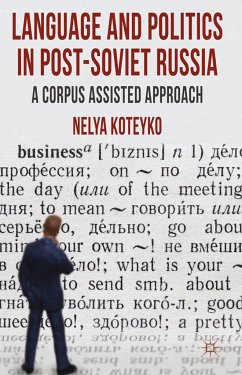
The Exercise of Power in Communication
Devices, Reception and Reaction
Herausgegeben: Schulze, R.; Pishwa, H.
Versandkostenfrei!
Versandfertig in 6-10 Tagen
38,99 €
inkl. MwSt.

PAYBACK Punkte
19 °P sammeln!
This book explores the various choices speakers or communicators make when expressing power relations in modern societies. The volume brings together several disciplines, such as linguistics, sociology, communication studies and social psychology, to give insight into how interactants co-construct different aspects of power in their everyday life.














